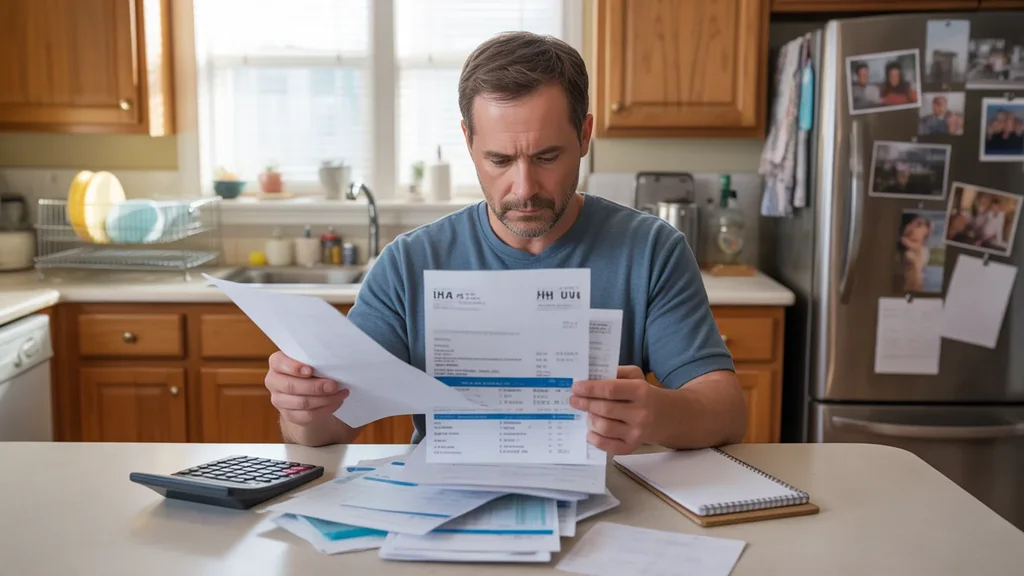Unexpected Living Costs in Alpharetta

When budgeting for life in Alpharetta, it’s easy to overlook the hidden fees that can add up quickly. Surprise charges in this Atlanta suburb can tack on an extra $100–$300 per month, depending on your home size, usage habits, and neighborhood. As you review your monthly bills, watch out for these common culprits:
- Trash and recycling fees
- Water and sewer base charges
- Storm water runoff fees
- Metered irrigation costs
- Bulk item pickup surcharges
Staying on top of these hidden fees is key to understanding your utility costs in Alpharetta. Let’s break down the most common charges to help you plan proactively.
Common Utility and Service Fees
While your core utilities like electricity and gas are fairly predictable, Alpharetta residents often encounter extra fees for municipal services, including:
- Trash collection: $20-25/month
- Recycling: $5-10/month
- Water overages: $2-5 per CCF over base allowance
- Storm water runoff: $5-10/month based on impervious surface area
- Metered irrigation: $4-8 per CCF plus base fee
These fees can fluctuate seasonally, so it’s wise to review your statements each month. You may also have neighborhood-specific charges, like street light maintenance or mosquito abatement, billed through your HOA or a special assessment.
Permit and Inspection Fees
Whether you’re a homeowner or renter in Alpharetta, you may be on the hook for permit-related fees, such as:
| Fee Type | Estimated Cost |
|---|---|
| HOA violation fine | $25-100 per occurrence |
| Short-term rental permit | $150 annually |
| Residential parking permit | $20 per vehicle |
| Home renovation inspection | $50-150 based on project scope |
On average, expect to pay $200–$500 for a basic home improvement permit in Alpharetta. Fail to get one, and you risk incurring stiff penalty fees. Always check your HOA rules and city building codes before starting work.
Neighborhood-Specific or Seasonal Charges
Your Alpharetta neighborhood may have its own unique fees, often billed through the HOA or a special assessment. These might cover shared amenities and services like:
- Community pool upkeep
- Landscaping and greenspace maintenance
- Bulk trash removal or special pickups
- Mosquito spraying and pest control
Some HOAs bill quarterly or even annually, so these costs can catch you off guard. Condo and townhome communities may have additional fees for things like elevator maintenance or shared utility metering. Always review your HOA docs carefully and understand what your dues do and don’t cover.
How to Plan for These Hidden Costs
The best way to avoid billing surprises is to do your homework. Start by:
- Carefully reviewing city and county fee schedules
- Reading your utility statements line-by-line
- Checking HOA bylaws for dues, assessments, and fines
- Budgeting an extra 10-15% buffer for seasonal spikes
🏆 Planning Tip: When buying a home in Alpharetta, ask the seller for the last 12 months of utility statements. This will give you a realistic baseline for that property. You can also request a fee schedule from the HOA and city to understand permit costs and other one-off charges.
FAQ: Hidden Costs of Living in Alpharetta
Do HOA fees include everything?
Not always. Review your HOA contract to see what’s covered and what may be billed separately or as a special assessment.
What’s the most overlooked city fee?
Storm water fees often catch Alpharetta residents by surprise. These are based on your property’s impervious surface area.
Can landlords charge separately for trash or irrigation?
Yes. In Alpharetta, it’s common for landlords to bill tenants separately for municipal services and shared meter usage. Always get a lease breakdown.
Avoiding Surprise Charges in Alpharetta
Now that you know the most common hidden fees in Alpharetta, you can plan ahead to avoid sticker shock. Remember to:
- Scrutinize your utility statements and HOA docs
- Check city permit requirements before starting projects
- Budget a 10-15% cushion for seasonal cost spikes
- Ask for 12 months of utility history when buying a home
For a personalized cost breakdown and budgeting checklist, try our Alpharetta New Resident Toolkit. With a little foresight, you can uncover and manage all of the hidden fees that come with life in this popular Atlanta suburb.
